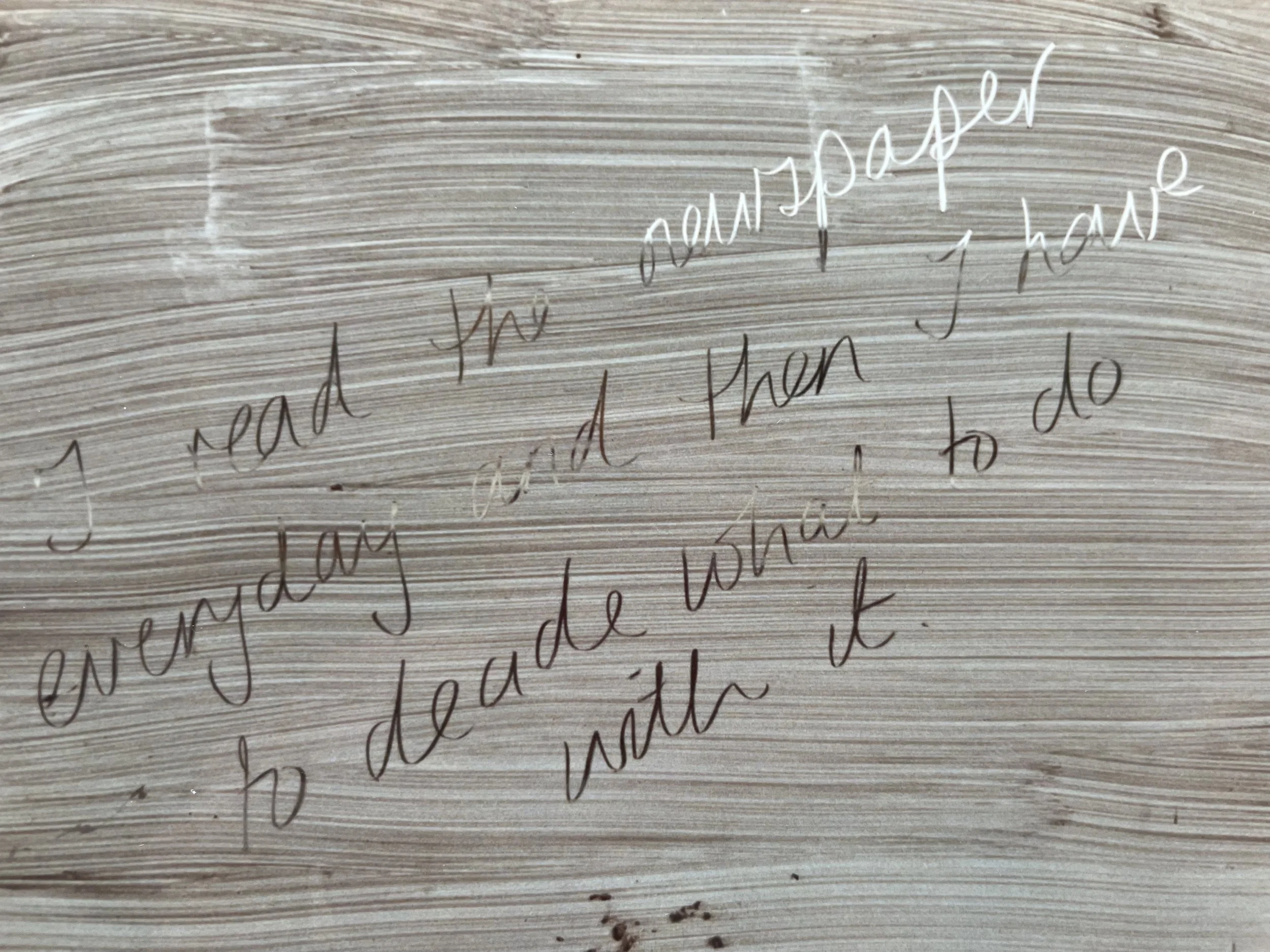THE ZWILLINGE PROJECT EPISODE 4 WORKSPACE
At the end of a trail of half finished canvases and sculptures of the old uniform factory which is now Leeds' Workspace is a quiet, white corner, bordered by false walls, where two waist high barriers of bundled newspapers and reclaimed bricks separate you from a woman in white shift and blue apron who is sifting a pile of earth and gravel into two heaps. One window is boarded up with wooden planks like a cattle truck, another is covered over with German newsprint; early evening sunlight filters in through the remaining broken window.
Theatre-maker Melanie Thompson animates the rough but considered beauty of Kirsten Lavers' installation with an integrity which confirms the closeness of their collaborative experience. Their starting points were shared preocupations as artists, as women, as mothers, represented by two central concerns - twins (Thompson is the mother of twins) and Germany (Lavers is half german).
Like the best things in life, the richness of the piece stems from its simplicity.
sieves, peat, marble chippings, bricks, newspapers, burnt wood, cherries, plasters, jigsaw map of England, water
performance presence: sieving peat and marble chippings, dismantling a wall, completing a jigsaw, planting cherry stones
The few basic ideas and images combine and interlink to generate myriad and complex resonances. In amoungst the earth, for example, are fragments of a jigsaw of the world which Thompson pieces together as she goes; in conjunction with the jigsaw, the mound of earth suggests itself as an island, but next to the broken and boarded up windows it seems more like a grave; smoothed out into an oblong surrounded by bricks, and with a tired woman kneeling beside it, it offers itself as a bed; but when she plants the stones of the cherries she has been eating, it becomes instead a garden.
In so intimate a space it feels artificial for us not to lend a friendly hand with the sieving of earth and the humping of bricks; but not doing so we stand passively and fall to contemplating the way that we in this still-affluent island, untroubled by war, watch the vicissitudes of even our near neighbours (Crystallnacht, the mass burial of millions of Jews, the Berlin Wall, the disruption of unification) with wretched astonishment. As Brits we are protected by sea, not by the "false walls" of borders which change and disappear; likewise as individuals we are islands, sometimes longing to reunite with an other, our twin, our mainland, yet as artists and workers our separation - meaning our solitude - is necessary and desired. As mothers that ambiguity of separation and connection is impossibly heightened.
Clare Bayley Hybrid Magazine Aug 1993














